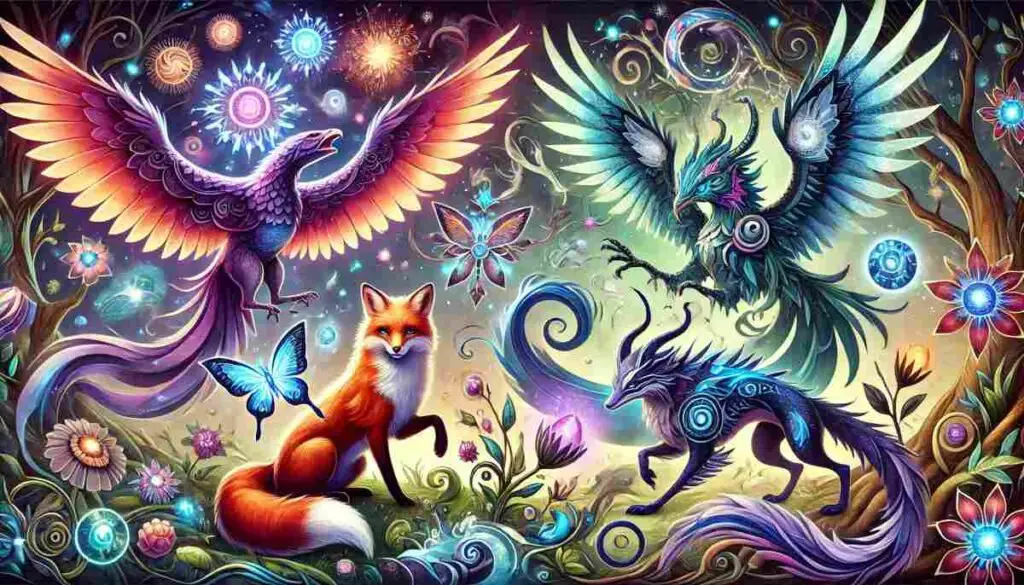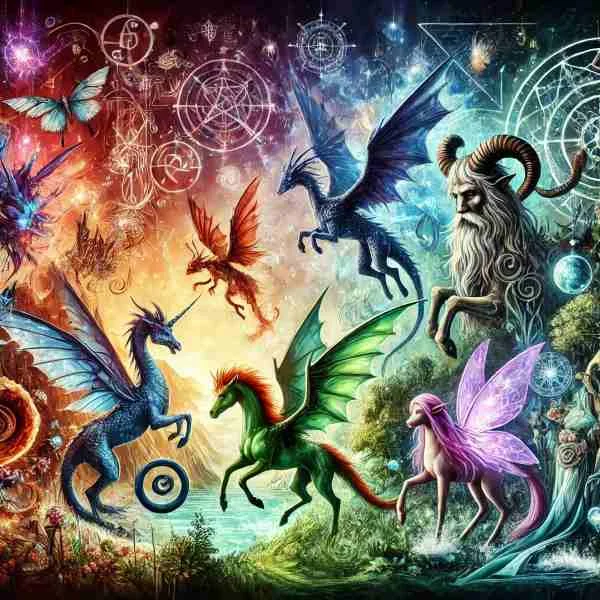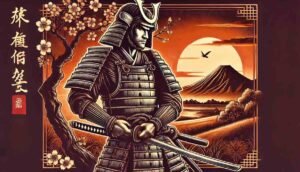Creature Names: Meaning, Origin, and Tips for Creating Your Own

Fantasy stories are full of interesting and magical creatures that make the world feel alive. These creatures, whether they are fierce dragons or gentle fairies, are often remembered by their unique and creative names. But how do you come up with a name that fits your creature perfectly? In this blog post, we’ll explore what makes a good creature name, look at some famous examples, and share tips for creating your own.
What Makes a Good Creature Name?
A good creature name should be easy to remember, reflect the creature’s characteristics, and fit well within the world it belongs to. Here are some key things to think about:
1. Reflect the Creature’s Traits
The name should tell us something about the creature. For example, the name “Hydra” comes from Greek mythology and means “water serpent,” which suits a multi-headed sea monster. Names like “Fluffy” might not work well for a terrifying beast, but they could be perfect for a friendly creature.
2. Simple and Easy to Say
Complicated names can be hard to remember and pronounce. It’s best to keep it simple. For example, “Troll” is easier to say and remember than something like “Grimbloodorok.”
3. Match the World or Culture
The name should fit the world the creature lives in. If your story is set in an ancient, magical forest, a name like “Eldertree” might be better than something that sounds modern or out of place.
Famous Creature Names and Their Meanings
Here are some well-known fantasy creatures and the meanings behind their names:
- Hydra: A multi-headed water serpent from Greek mythology. If one head is cut off, two more grow in its place.
- Cerberus: A three-headed dog that guards the entrance to the underworld in Greek myths. His name means “spotted” or “evil of the pit.”
- Chupacabra: A creature from Latin American folklore, known for attacking livestock, especially goats. Its name means “goat-sucker.”
- Pixiu: A Chinese mythical creature believed to bring wealth and good fortune. It has a lion’s body and a dragon’s head.
How to Create Your Own Creature Names
Creating a unique name for your creature can be a lot of fun! Here are some tips to help you come up with the perfect name:
1. Combine Words
Try mixing words that describe your creature. For example, if your creature is a mix between a cat and a bird, you could call it a “Catbird” or a “Felifeather.”

2. Use Sounds That Match the Creature
Some sounds can help express the nature of your creature. Soft, flowing sounds like “S” or “L” might suit gentle creatures, while harsher sounds like “K” or “Z” could be better for tough or scary ones.
3. Get Inspiration from Different Languages
Look at words from different languages. For example, the word “Ami” in Egyptian means lion, and could be used as part of a creature’s name to show its strong, regal nature.
4. Think About the Creature’s Background
If your creature lives in a magical forest, its name might be inspired by trees or plants. If it’s from a desert, its name could be related to sand or heat.
Examples of Made-Up Creature Names
- Blightbeast: A creature that brings disease and decay.
- Gladefox: A magical fox that lives in enchanted forests.
- Stormclaw: A bird-like creature with claws that strike like lightning.
- Flamewing: A dragon that breathes fire and has glowing wings.
250 Unique Fantasy Creature Names
500 unique fantasy creature names:
- Vyrnox
- Luminara
- Drakthar
- Aeloria
- Nyxen
- Solvex
- Elarion
- Crystarion
- Grimwulf
- Thalindra
- Zoltrax
- Miradorn
- Galvanis
- Velmara
- Zypheran
- Braxtor
- Eldrazar
- Seraphix
- Voltrex
- Azurath
- Kymerion
- Ferndel
- Dravok
- Zephyriel
- Quorath
- Umbraxis
- Cerulean
- Myrinth
- Xarion
- Thalassa
- Quivera
- Aerilon
- Kaldross
- Lyraxis
- Valkara
- Pyrrhus
- Darvella
- Jynxara
- Vexoria
- Thryndel
- Zephara
- Kryndor
- Voragoth
- Elysara
- Ventraxis
- Xylaron
- Tremorus
- Oryndor
- Zarinth
- Scytheris
- Phyrion
- Xanthra
- Arcanis
- Velandra
- Krellian
- Nyxara
- Zylvex
- Vaeloria
- Mordak
- Qyxaris
- Kaldris
- Ryvoria
- Vorlath
- Elowen
- Arcturus
- Sylvyris
- Quithara
- Xyphar
- Daraxis
- Talindra
- Valthor
- Myrelis
- Zephyros
- Xandara
- Venatrix
- Krysalin
- Zarathor
- Ferelith
- Lyrathis
- Nyxiris
- Pyxarius
- Solarae
- Zepharael
- Valdrak
- Azuriel
- Kaelion
- Evarion
- Fyrandel
- Vaeloria
- Myrakar
- Xarvyn
- Jorath
- Serelyn
- Quorraxis
- Aerithis
- Thalindor
- Zelvyn
- Crystalia
- Dravira
- Kalindra
- Mordrath
- Vexalia
- Kyrenis
- Ferendor
- Zylaris
- Elaris
- Draklorn
- Xyveris
- Zephyrion
- Valkaris
- Lyriana
- Grimdor
- Zyphara
- Zorathar
- Velarion
- Darvex
- Jynxalis
- Quorran
- Zephyra
- Xaldris
- Elvarin
- Crystara
- Kytheris
- Dravaris
- Valaris
- Mordara
- Zyveran
- Qylaris
- Velorae
- Xyranor
- Draktharion
- Evaris
- Thalindrax
- Zytheris
- Jynxarael
- Serelith
- Kyvara
- Valthoran
- Zephyrax
- Velmaris
- Xarvon
- Grimvex
- Crystaria
- Aerilith
- Zephyrel
- Kalindor
- Mordalis
- Vexorin
- Qorraxis
- Xalor
- Elarionyx
- Thalindrel
- Zelvor
- Drakaris
- Valkariel
- Kryndar
- Zephralis
- Zyranth
- Ferelithar
- Jorathor
- Dravarn
- Velorion
- Nyxarion
- Aerilorn
- Zylarian
- Grimnoth
- Kyvarael
- Thalindorion
- Quorrathar
- Mordarak
- Zephyronis
- Xarvyris
- Myrindel
- Crystorian
- Valthar
- Dravorn
- Elaron
- Zyvalis
- Zyrarion
- Jorathis
- Zephraxis
- Valkarion
- Grimnar
- Dravend
- Evarithis
- Velos
- Vexoriax
- Thalindros
- Kyrelith
- Crystel
- Dravirael
- Zythelis
- Myrion
- Zythor
- Zephyrosyn
- Zevaris
- Valkor
- Darvexis
- Vexalith
- Myrindor
- Thalor
- Kalvorn
- Valthorion
- Zephyrelix
- Jynxaris
- Crystarian
- Aerionis
- Velandrax
- Mordir
- Valdrith
- Zorathos
- Nyxorith
- Jorathorix
- Thalindrosyn
- Zephyrlis
- Drakthorian
- Grimnath
- Zytherion
- Qylarion
- Kalindorix
- Mordrel
- Zephyraxor
- Elaronix
- Dravorith
- Crystelix
- Jynxarion
- Velorix
- Zephralith
- Thalindorix
- Zylarionix
- Grimvorn
- Velmarion
- Zephyrosynix
- Xyvern
- Mordrax
- Kyrelis
- Jorathos
- Valthorix
- Crystelion
- Drakthorionix
- Zytherionix
- Zephyrosian
- Kalindorion
- Mordrion
- Velorionix
- Zephralion
- Grimnorian
- Zylarionis
- Xaldrion
- Evarionis
FAQs About Creature Names
1. Why are creature names important?
Creature names help readers understand what the creature is like and make the story more immersive. A good name can make the creature memorable and add depth to your world.
2. Can I use real-world names for my fantasy creatures?
Yes, you can! Many fantasy creatures have names based on real myths and legends, like “Cerberus” from Greek mythology. Just make sure it fits your story and doesn’t confuse your audience.
3. How do I choose a name for my creature?
Think about what makes your creature special. Is it strong, fast, or magical? Use these traits to come up with a name that reflects what it is like.
4. Can a creature have a funny or cute name?
Absolutely! Not all creatures have to be scary or serious. A name like “Bumblepuff” could be perfect for a small, fluffy creature in a whimsical story.
5. What if I can’t think of a good name?
Don’t worry! Try using a name generator for ideas or look at existing creature names for inspiration. You can always change it later if you come up with something better.
6. Should I use the same naming style for all my creatures?
It’s a good idea to have a consistent style for creature names, especially if they are all from the same world or region. This helps make your world feel more connected and real.
7. Can I use real animal names for fantasy creatures?
Yes, combining real animal names can work well, like “Sharkbear” or “Ravenwolf.” Just make sure the name makes sense for your creature and story.
Final Thoughts
Creating creature names is a creative process that can bring your fantasy world to life. Whether you’re writing a story, creating a game, or just having fun with ideas, a well-chosen name can make your creatures unforgettable. Remember to keep it simple, reflect your creature’s traits, and have fun experimenting with different sounds and languages. Happy naming!



